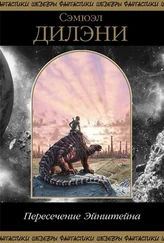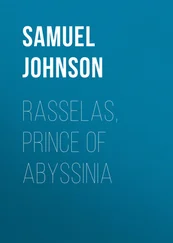Сэмюэль Джонсон - Rasselas
Здесь есть возможность читать онлайн «Сэмюэль Джонсон - Rasselas» весь текст электронной книги совершенно бесплатно (целиком полную версию без сокращений). В некоторых случаях можно слушать аудио, скачать через торрент в формате fb2 и присутствует краткое содержание. Год выпуска: 1759, Жанр: Классическая проза, на английском языке. Описание произведения, (предисловие) а так же отзывы посетителей доступны на портале библиотеки ЛибКат.
- Название:Rasselas
- Автор:
- Жанр:
- Год:1759
- ISBN:нет данных
- Рейтинг книги:5 / 5. Голосов: 1
-
Избранное:Добавить в избранное
- Отзывы:
-
Ваша оценка:
- 100
- 1
- 2
- 3
- 4
- 5
Rasselas: краткое содержание, описание и аннотация
Предлагаем к чтению аннотацию, описание, краткое содержание или предисловие (зависит от того, что написал сам автор книги «Rasselas»). Если вы не нашли необходимую информацию о книге — напишите в комментариях, мы постараемся отыскать её.
Rasselas — читать онлайн бесплатно полную книгу (весь текст) целиком
Ниже представлен текст книги, разбитый по страницам. Система сохранения места последней прочитанной страницы, позволяет с удобством читать онлайн бесплатно книгу «Rasselas», без необходимости каждый раз заново искать на чём Вы остановились. Поставьте закладку, и сможете в любой момент перейти на страницу, на которой закончили чтение.
Интервал:
Закладка:
«They are more powerful, sir, than we,» answered Imlac, «because they are wiser; knowledge will always predominate over ignorance, as man governs the other animals. But why their knowledge is more than ours I know not what reason can be given but the unsearchable will of the Supreme Being.»
«When,» said the Prince with a sigh, «shall I be able to visit Palestine, and mingle with this mighty confluence of nations? Till that happy moment shall arrive, let me fill up the time with such representations as thou canst give me. I am not ignorant of the motive that assembles such numbers in that place, and cannot but consider it as the centre of wisdom and piety, to which the best and wisest men of every land must be continually resorting.»
«There are some nations,» said Imlac, «that send few visitants to Palestine; for many numerous and learned sects in Europe concur to censure pilgrimage as superstitious, or deride it as ridiculous.»
«You know,» said the Prince, «how little my life has made me acquainted with diversity of opinions; it will be too long to hear the arguments on both sides; you, that have considered them, tell me the result.»
«Pilgrimage,» said Imlac, «like many other acts of piety, may be reasonable or superstitious, according to the principles upon which it is performed. Long journeys in search of truth are not commanded. Truth, such as is necessary to the regulation of life, is always found where it is honestly sought. Change of place is no natural cause of the increase of piety, for it inevitably produces dissipation of mind. Yet, since men go every day to view the fields where great actions have been performed, and return with stronger impressions of the event, curiosity of the same kind may naturally dispose us to view that country whence our religion had its beginning, and I believe no man surveys those awful scenes without some confirmation of holy resolutions. That the Supreme Being may be more easily propitiated in one place than in another is the dream of idle superstition, but that some places may operate upon our own minds in an uncommon manner is an opinion which hourly experience will justify. He who supposes that his vices may be more successfully combated in Palestine, will perhaps find himself mistaken; yet he may go thither without folly; he who thinks they will be more freely pardoned, dishonours at once his reason and religion.»
«These,» said the Prince, «are European distinctions. I will consider them another time. What have you found to be the effect of knowledge? Are those nations happier than we?»
«There is so much infelicity,» said the poet, «in the world, that scarce any man has leisure from his own distresses to estimate the comparative happiness of others. Knowledge is certainly one of the means of pleasure, as is confessed by the natural desire which every mind feels of increasing its ideas. Ignorance is mere privation, by which nothing can be produced; it is a vacuity in which the soul sits motionless and torpid for want of attraction, and, without knowing why, we always rejoice when we learn, and grieve when we forget. I am therefore inclined to conclude that if nothing counteracts the natural consequence of learning, we grow more happy as out minds take a wider range.
«In enumerating the particular comforts of life, we shall find many advantages on the side of the Europeans. They cure wounds and diseases with which we languish and perish. We suffer inclemencies of weather which they can obviate. They have engines for the despatch of many laborious works, which we must perform by manual industry. There is such communication between distant places that one friend can hardly be said to be absent from another. Their policy removes all public inconveniences; they have roads cut through the mountains, and bridges laid over their rivers. And, if we descend to the privacies of life, their habitations are more commodious and their possessions are more secure.»
«They are surely happy,» said the Prince, «who have all these conveniences, of which I envy none so much as the facility with which separated friends interchange their thoughts.»
«The Europeans,» answered Imlac, «are less unhappy than we, but they are not happy. Human life is everywhere a state in which much is to be endured and little to be enjoyed.»
CHAPTER XII
THE STORY OF IMLAC (continued).
«I am not willing,» said the Prince, «to suppose that happiness is so parsimoniously distributed to mortals, nor can I believe but that, if I had the choice of life, I should be able to fill every day with pleasure. I would injure no man, and should provoke no resentments; I would relieve every distress, and should enjoy the benedictions of gratitude. I would choose my friends among the wise and my wife among the virtuous, and therefore should be in no danger from treachery or unkindness. My children should by my care be learned and pious, and would repay to my age what their childhood had received. What would dare to molest him who might call on every side to thousands enriched by his bounty or assisted by his power? And why should not life glide away in the soft reciprocation of protection and reverence? All this may be done without the help of European refinements, which appear by their effects to be rather specious than useful. Let us leave them and pursue our journey.»
«From Palestine,» said Imlac, «I passed through many regions of Asia; in the more civilised kingdoms as a trader, and among the barbarians of the mountains as a pilgrim. At last I began to long for my native country, that I might repose after my travels and fatigues in the places where I had spent my earliest years, and gladden my old companions with the recital of my adventures. Often did I figure to myself those with whom I had sported away the gay hours of dawning life, sitting round me in its evening, wondering at my tales and listening to my counsels.
«When this thought had taken possession of my mind, I considered every moment as wasted which did not bring me nearer to Abyssinia. I hastened into Egypt, and, notwithstanding my impatience, was detained ten months in the contemplation of its ancient magnificence and in inquiries after the remains of its ancient learning. I found in Cairo a mixture of all nations: some brought thither by the love of knowledge, some by the hope of gain; many by the desire of living after their own manner without observation, and of lying hid in the obscurity of multitudes; for in a city populous as Cairo it is possible to obtain at the same time the gratifications of society and the secrecy of solitude.
«From Cairo I travelled to Suez, and embarked on the Red Sea, passing along the coast till I arrived at the port from which I had departed twenty years before. Here I joined myself to a caravan, and re-entered my native country.
«I now expected the caresses of my kinsmen and the congratulations of my friends, and was not without hope that my father, whatever value he had set upon riches, would own with gladness and pride a son who was able to add to the felicity and honour of the nation. But I was soon convinced that my thoughts were vain. My father had been dead fourteen years, having divided his wealth among my brothers, who were removed to some other provinces. Of my companions, the greater part was in the grave; of the rest, some could with difficulty remember me, and some considered me as one corrupted by foreign manners.
«A man used to vicissitudes is not easily dejected. I forgot, after a time, my disappointment, and endeavoured to recommend myself to the nobles of the kingdom; they admitted me to their tables, heard my story, and dismissed me. I opened a school, and was prohibited to teach. I then resolved to sit down in the quiet of domestic life, and addressed a lady that was fond of my conversation, but rejected my suit because my father was a merchant.
Читать дальшеИнтервал:
Закладка:
Похожие книги на «Rasselas»
Представляем Вашему вниманию похожие книги на «Rasselas» списком для выбора. Мы отобрали схожую по названию и смыслу литературу в надежде предоставить читателям больше вариантов отыскать новые, интересные, ещё непрочитанные произведения.
Обсуждение, отзывы о книге «Rasselas» и просто собственные мнения читателей. Оставьте ваши комментарии, напишите, что Вы думаете о произведении, его смысле или главных героях. Укажите что конкретно понравилось, а что нет, и почему Вы так считаете.



![Сэмюэль Беккет - Счастливые дни [другой перевод]](/books/98045/semyuel-bekket-schastlivye-dni-drugoj-perevod-thumb.webp)



![Сэмюэль Сковилль - Скауты в лесах [litres]](/books/417949/semyuel-skovill-skauty-v-lesah-litres-thumb.webp)
